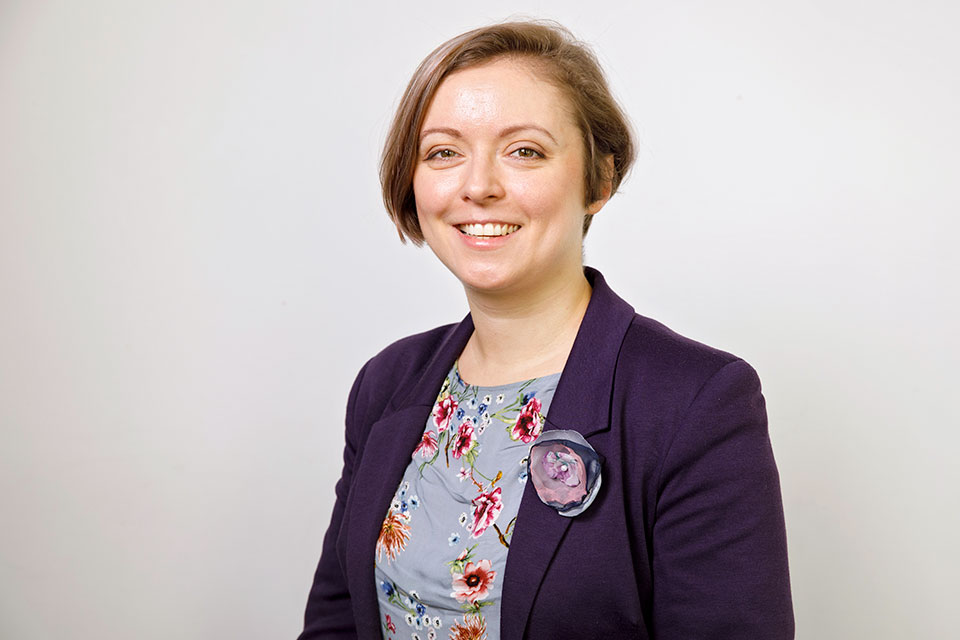In the words of Oksana Potapova: “We need radical transformation”
Date:

Oksana Potapova, 35, is a Ukrainian peace activist, community theatre practitioner and a feminist. She is the co-founder of ‘Theatre for Dialogue’, an organization that uses community-based theatre to work with conflict-affected communities. UN Women Ukraine works in partnership with Theatre for Dialogue to raise women’s awareness of their rights. Ms. Potapova spoke to UN Women about her work and her reflections on the upcoming 25th anniversary of the Beijing Declaration and Platform for Action.
Twenty-five years since the Beijing Platform for Action…We’ve seen lots of progress in laws. At least two countries have a self-proclaimed feminist policy. All over the world, we have seen vibrant women’s movements bloom, such as “#MeToo”.
In Ukraine, ‘gender equality’ is not a taboo anymore. The words “feminism” and “feminist” have gained traction and are more commonplace. Thanks to NGOs and the media, I think. Advocating for a new mindset has been one of our main struggles.
Meanwhile, on the political and economic field, we have much [more] to do. There is no political will for a real, actual gender equality. There is much talk, not enough action.
The new laws are often made for just two [broad] groups of people—men and women—without any specifics. Single mothers face very specific challenges in Ukraine; displaced face specific challenges. We are still living in men’s world, where men are supposed to work outside and bring back a living wage, while childcare is left over to women.
During the conflict in Ukraine, new challenges have risen for women, like taking care of elders and children. They can’t afford to pay for kindergarten; they don’t have access to family networks whose support is so critical to manage childcare. When you’re displaced in a community, you’re cut off from your network, you’re left hustling alone without anybody to help. Economic vulnerability takes over and it takes a long, long time before establishing connections within the new community.
We’re doing community theatre [in Ukraine]. Emotions, body experiences play a role. Men take part in our plays too…. we share stories… We ask, ‘What does discrimination mean to you?’ ‘What’s your story?’ Then we try to analyze the situation as a group—what can we do, together, to change stereotypes?
We [also] analyze legislation. At times, we talk with our legislators. One of our [recent] performances was set at the parliamentary hearings about women facing multiple forms of discrimination. We looked at the CEDAW Convention[1] and the National Action Plan on CEDAW that the government has developed, and we brought in women who have faced discrimination: displaced women, mothers of children with disabilities, older women… so that we can compare how their daily life and realities are reflected in these laws, or not.
We need radical transformation. Unless this happens, nothing will change. We’ll just keep doing lip service to gender equality.
Having global international intergovernmental commitments [like the Beijing Platform for Action], and reminding ourselves of those commitments, is very important. We must keep each other accountable and say, ‘this is what we agreed to do, we all signed on this... What have we done to achieve this? Why has it not happened, what needs to be done?’ It’s a way for us to be accountable to ourselves and remind ourselves of the future we want.
For me, the Beijing Platform for Action and other international global spaces like the UN Commission on the Status of Women are spaces of genuine solidarity to dream about the kind of future we want.”
Notes
[1] Convention on the Elimination of all forms of Discrimination against Women (CEDAW)